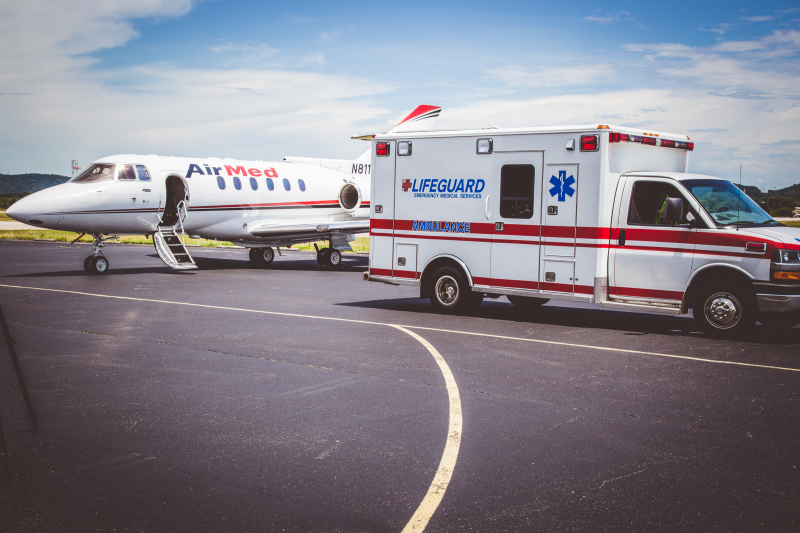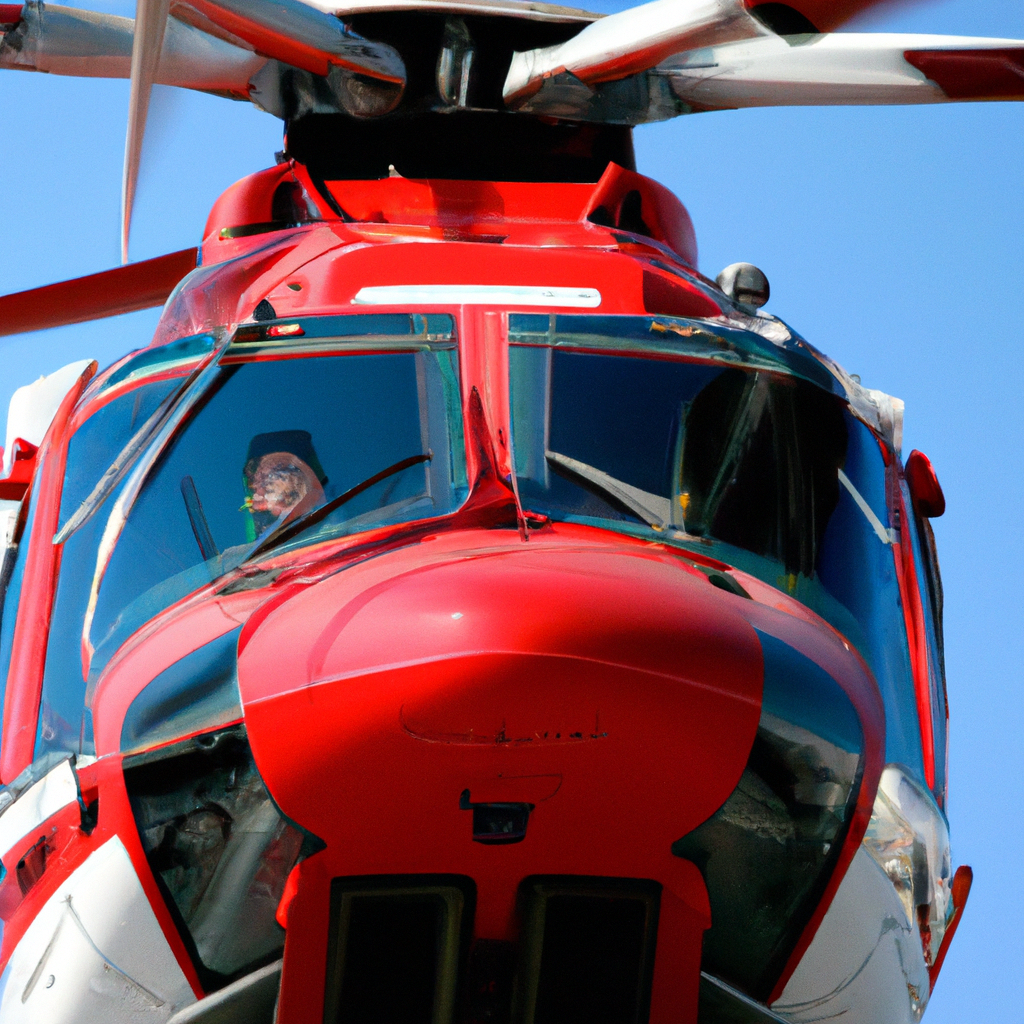So, picture this: you’re in a situation where you or a loved one requires urgent medical care, and the only option is to use an air ambulance. It’s a high-stress situation, and you’re relying on the expertise and professionalism of the air ambulance crew to provide the best possible care. But have you ever stopped to consider the ethical considerations that come into play in these scenarios? That’s what we’re going to explore in this article. We’ll discuss the importance of patient autonomy, the challenges of resource allocation, and the ethical responsibilities of air ambulance providers. Trust me, it’s fascinating stuff. Let’s dive right in and explore the world of ethical considerations in air ambulance patient care.
Ethical Considerations in Air Ambulance Patient Care
Air ambulance services are an essential part of the healthcare system, providing critical care and transportation to patients in need. However, there are various ethical considerations that need to be taken into account when providing patient care in this unique setting. In this article, we will explore some of the key ethical considerations in air ambulance patient care and discuss the importance of addressing them to ensure the well-being and dignity of the patients.
Informed Consent
One of the fundamental ethical tenets in any medical practice is obtaining informed consent from the patient before performing any procedures or treatments. In the context of air ambulance services, obtaining informed consent can be challenging due to the urgency of the situation and the limited time available. However, it is essential that patients and their families understand the risks, benefits, and alternatives of air ambulance transportation.
Air ambulance teams must make every effort to provide clear and concise information to patients and their families, ensuring that they understand the purpose, procedures, and potential outcomes of air ambulance transport. It is crucial to respect the patient’s autonomy and ensure that they have the opportunity to make informed decisions about their care and transportation.
Patient Privacy and Confidentiality
Patient privacy and confidentiality are critical aspects of healthcare ethics. In the case of air ambulance patient care, privacy may be compromised due to the close proximity of healthcare providers and the limited space available on the aircraft. It is essential for all healthcare professionals involved in air ambulance services to maintain strict confidentiality and respect the privacy of the patients.
Air ambulance teams should implement measures to ensure patient privacy, such as utilizing curtains or screens to create private spaces whenever possible. Additionally, healthcare professionals should only discuss patient information with authorized individuals directly involved in the patient’s care, ensuring that patient confidentiality is upheld.
Decisions Regarding Treatment
When providing care in an air ambulance setting, healthcare professionals may face challenging decisions regarding the appropriate treatment for patients. The limited resources and time constraints can sometimes complicate these decisions. It is crucial for healthcare professionals to adhere to ethical principles such as beneficence, non-maleficence, and respect for patient autonomy when making treatment decisions.
Healthcare professionals in air ambulance services should prioritize the well-being and best interests of the patient while considering their medical condition, available resources, and the risks and benefits of various treatment options. Open communication with patients and their families is key to ensuring that their preferences and values are taken into account when making these difficult decisions.
Allocation of Resources
Air ambulance services often operate in environments with limited resources, such as medical equipment, medications, and personnel. This necessitates careful allocation and utilization of these resources to ensure optimal patient care. Ethical considerations come into play when determining how resources should be distributed in situations where demand exceeds availability.
Healthcare professionals in air ambulance services should follow ethical principles of fairness, justice, and impartiality when allocating resources. Transparent and objective criteria should be used to prioritize patients based on the severity of their condition and the potential for treatment success.

End-of-Life Care
In certain cases, air ambulance services may be involved in the transport of terminally ill or critically injured patients nearing the end of life. Providing compassionate end-of-life care is a crucial ethical consideration in this scenario. Healthcare professionals must prioritize patient comfort, dignity, and respect during this challenging time.
Air ambulance teams should have protocols in place to ensure that patients and their families receive the necessary emotional support and palliative care during transport. Clear communication regarding the patient’s prognosis, treatment options, and goals of care is essential to facilitate informed decision-making and ensure that the patient’s wishes are honored.
Cultural and Religious Considerations
Air ambulance services often transport patients from diverse cultural and religious backgrounds. It is essential to recognize and respect these differences in providing patient care. Healthcare professionals should be culturally sensitive and aware of any religious or cultural preferences that may impact the patient’s care.
Air ambulance teams should inquire about the patient’s cultural and religious beliefs, rituals, and practices to ensure that their care is aligned with their values. Accommodations should be made whenever possible to respect and honor the patient’s cultural and religious needs.
Professionalism and Boundaries
Maintaining professionalism and boundaries is an ethical responsibility for healthcare professionals in any setting, including air ambulance services. Healthcare professionals must conduct themselves in a manner that upholds trust, respect, and integrity in their interactions with patients and their families.
Air ambulance teams should establish clear professional boundaries and avoid engaging in any behavior that could compromise the therapeutic relationship. They should also be mindful of power imbalances that may exist in the air ambulance setting and take steps to ensure that patients feel comfortable and empowered to voice their concerns or ask questions.
Maintaining Competence
Providing effective and safe care in the air ambulance setting requires healthcare professionals to maintain their competence and keep up with the latest advancements in patient care. Continuous education and training are essential to ensure that healthcare professionals have the necessary knowledge and skills to provide optimal care.
Air ambulance teams should adhere to professional standards and engage in ongoing professional development activities. They should actively seek opportunities to enhance their knowledge and skills, ensuring that they are well-equipped to handle the complex and diverse needs of the patients they serve.
Conflict of Interest
In any healthcare setting, healthcare professionals must be vigilant about avoiding conflicts of interest that could compromise patient care. This also holds true in the air ambulance setting, where healthcare professionals may encounter situations where personal or financial interests conflict with the best interests of the patient.
Healthcare professionals in air ambulance services should prioritize the welfare and best interests of the patient above any personal or financial motivations. Transparency and integrity are essential when making decisions or recommendations that may influence patient care or outcomes.
Conclusion
Ethical considerations play a vital role in air ambulance patient care. From obtaining informed consent and respecting patient privacy to making treatment decisions and allocating limited resources, healthcare professionals must navigate complex ethical dilemmas to provide the best possible care for their patients. By adhering to ethical principles, maintaining professionalism, and continuously developing their skills, air ambulance teams can ensure that they uphold the highest standards of patient care in this challenging and critical environment.



